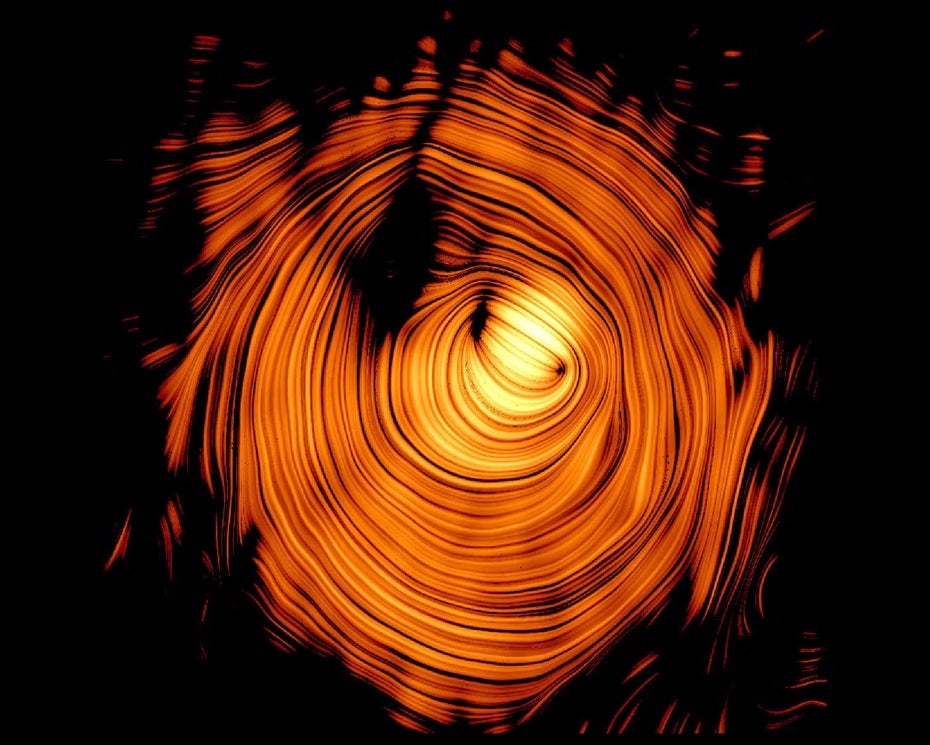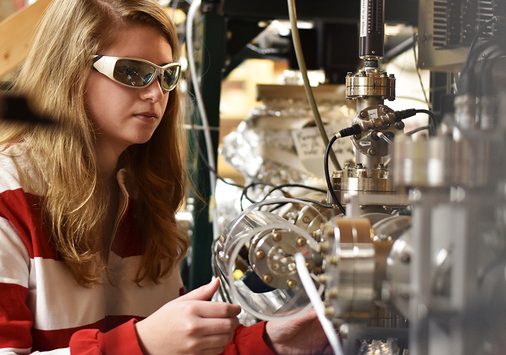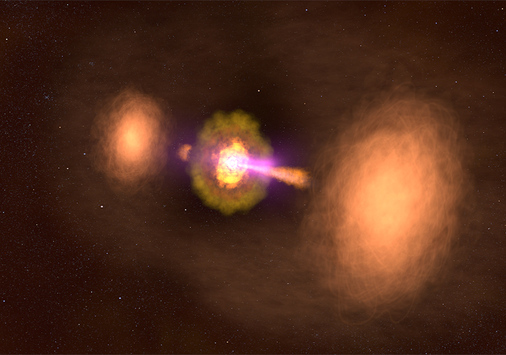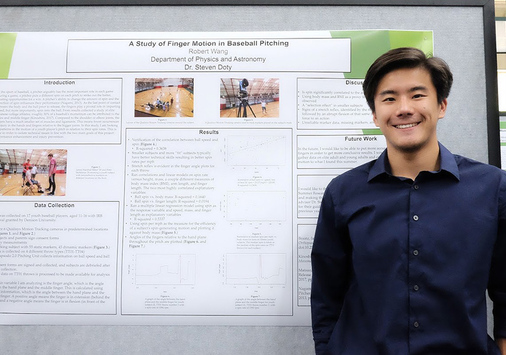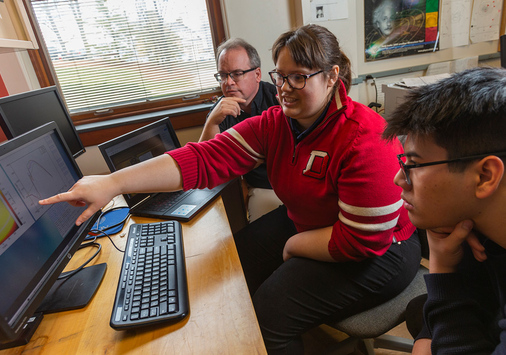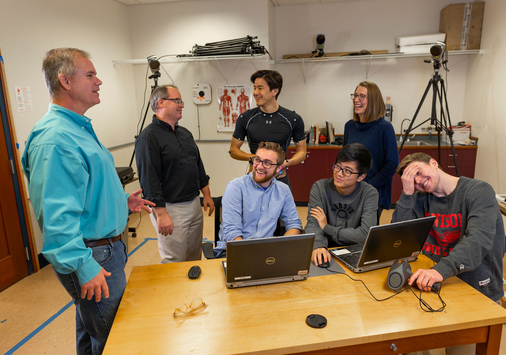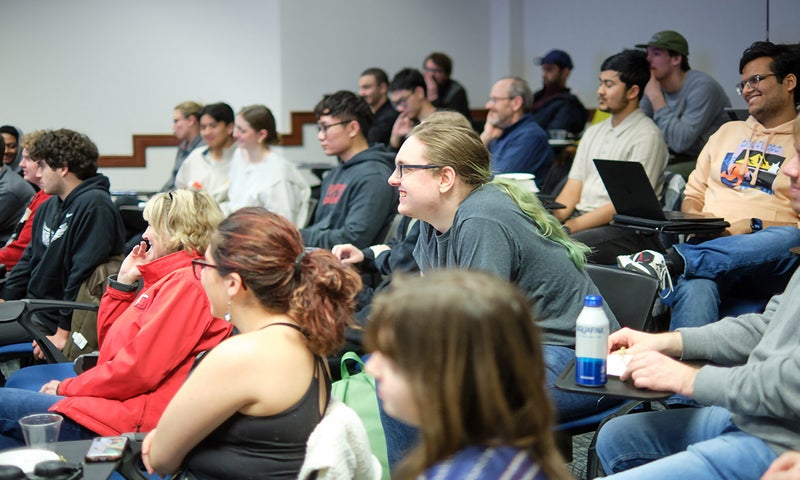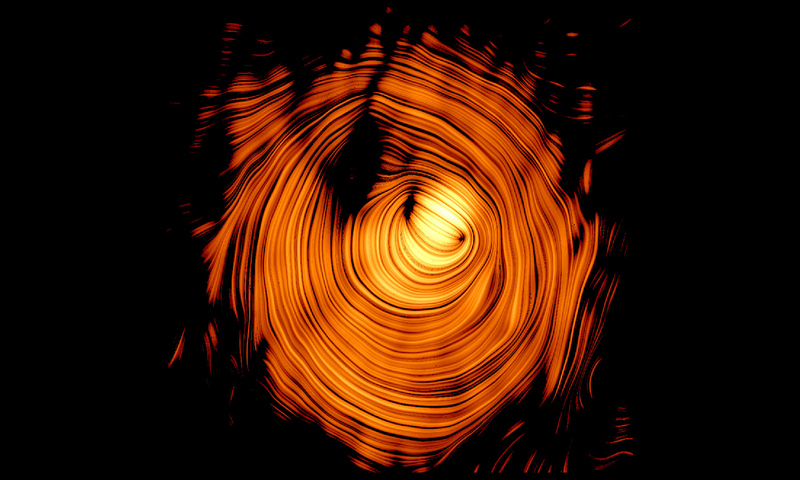Courses
2025 - 2026
For this academic year's course catalog, please visit our Academic Catalog site. For courses currently offered, please refer to the Schedule of Classes.
An introductory, general education science course. The topical focus of each iteration of this course is determined by the instructor. No previous training in physics is expected; mathematical preparation is assumed to include high school algebra and trigonometry.
A calculus-based course providing quantitative coverage of the foundations and concepts of physics and its approach toward understanding natural phenomena. Topics include Newtonian mechanics and dynamics, fluids, and thermal physics. Three lectures and one three-hour laboratory each week.
Prerequisite(s): MATH 130 or MATH 135 (or concurrent) or MATH 145 (or concurrent).
A calculus-based course providing quantitative coverage of the foundations and concepts of physics and its approach toward understanding natural phenomena. Topics include electricity, magnetism, waves, and optics. Three lectures and one three-hour laboratory each week.
Prerequisite(s): PHYS 121.
A course that introduces students to topics that are at the current frontiers of physics and astronomy, and helps students develop quantitative reasoning and analytical skills necessary for further study in these fields. Topics typically include special relativity, waves and interference, quantization of light and energy, the hydrogen atom, nuclear structure, radioactivity, and cosmology. This course satisfies the quantitative reasoning requirement. Three lectures and one three-hour laboratory per week.
Prerequisite(s): MATH 130 or MATH 135 or MATH 145 or concurrent.
Crosslisting: ASTR 125.
The second course in a calculus-based sequence primarily designed for those interested in physics, astronomy, and engineering. This course quantitatively explores the principles of physics and its approach toward investigating natural phenomena and the universe around us. Topics include Newtonian mechanics and dynamics, vibrations, fluids, and thermal physics. Three lectures and one three-hour laboratory each week.
Prerequisite(s): PHYS 125 or ASTR 125, MATH 135 or MATH 145 or concurrent.
The third course in a calculus-based sequence primarily designed for those interested in physics, astronomy, and engineering. This course quantitatively explores the principles of physics and its approach toward investigating natural phenomena and the universe around us. Topics include electricity, magnetism, waves, and optics. Three lectures and one three-hour laboratory each week.
Prerequisite(s): PHYS 126, MATH 145 or concurrent.
A general category used only in the evaluation of transfer credit.
A quantitative study of topics in modern physics including relativistic kinematics and dynamics, interactions between light and matter, quantum mechanics, and atomic physics. Analytical techniques are emphasized throughout.
Prerequisite(s): PHYS 122 or PHYS 127, PHYS 201 or concurrent.
An overview of mathematics applied to physical systems, with extensive use of examples from introductory and intermediate physics. Topics covered will include operators, functions, vectors, complex numbers, integration, differentiation, geometry, differential equations, and linear algebra. The unity of linear systems will be emphasized. Students will develop both analytical and computational techniques.
Prerequisite(s): PHYS 122 or PHYS 127, MATH 145.
A course on the physics of controlling and generating light. Topics typically include geometric optics, optical instruments, polarization, interference and diffraction, optical fibers, optical cavities, and lasers. Three class hours and one laboratory per week.
Prerequisite(s): PHYS 122 or PHYS 127.
A course exploring a topic in physics at the intermediate level. The topical focus of each iteration of this course is determined by the instructor. In some cases, the course may be repeated for credit.
Prerequisite(s): PHYS 121 or PHYS 126.
A general category used only in the evaluation of transfer credit.
A course in classical mechanics with a focus on analytical techniques. Topics include an in-depth exploration of Newton's laws, oscillations, rotations, the calculus of variations, central forces, non-inertial frames, the Lagrangian-Hamiltonian formulation of mechanics, and modern-day applications.
Prerequisite(s): PHYS 122 or PHYS 127, PHYS 201.
A course in the theory of electromagnetic interactions, including the sources and descriptions of electric and magnetic fields, Maxwell's equations, and electromagnetic radiation.
Prerequisite(s): PHYS 122 or PHYS 127, PHYS 201, PHYS 305.
A course in digital and analog electronics with an emphasis on circuit design and lab work. Topics typically include binary encoding, combinational and sequential logic, microcontrollers, AC circuits, transistors, op-amps, and interfacing with scientific instruments.
Prerequisite(s): PHYS 122 or PHYS 127.
An advanced lab course focused on experimental design and techniques, applying statistical principles to analyze and interpret data, and communicating scientific results through writing. May be repeated once for credit as either PHYS 312 or ASTR 312.
Prerequisite(s): PHYS 122 or PHYS 127, PHYS 200 recommended.
Crosslisting: ASTR 312.
A course in statistical mechanics and thermodynamics. Concepts such as free energy, entropy, chemical potential, and statistical ensembles are introduced and applied to a variety of both classical and quantum systems.
Prerequisite(s): PHYS 200, PHYS 201.
A course in quantum mechanics focusing on solutions of the Schrödinger equation for elementary systems, the mathematical formalism of quantum theory, the hydrogen atom, angular momentum, and perturbation theory.
Prerequisite(s): PHYS 200, PHYS 201, PHYS 305.
A course exploring a topic in physics at the advanced level. The topical focus of each iteration of this course is determined by the instructor. In some cases, the course may be repeated for credit.
Prerequisite(s): PHYS 122 or PHYS 127.
A student in good standing may work intensively in areas of special interest under the Directed Study plan. A Directed Study is appropriate when, under the guidance of a faculty member, a student wants to explore a subject more fully than is possible in a regular course or to study a subject not covered in the regular curriculum. A Directed Study should not normally duplicate a course that is regularly offered. Directed Studies are normally taken for 3 or 4 credits. A one-semester Directed Study is limited to a maximum of 4 credit hours. Note: Directed Studies may not be used to fulfill General Education requirements.
Prerequisite(s): Consent of chairperson.
A student in good standing may work intensively in areas of special interest under the Directed Study plan. A Directed Study is appropriate when, under the guidance of a faculty member, a student wants to explore a subject more fully than is possible in a regular course or to study a subject not covered in the regular curriculum. A Directed Study should not normally duplicate a course that is regularly offered. Directed Studies are normally taken for 3 or 4 credits. A one-semester Directed Study is limited to a maximum of 4 credit hours. Note: Directed Studies may not be used to fulfill General Education requirements.
Prerequisite(s): Consent of chairperson.
Independent Study engages a student in the pursuit of clearly defined goals. In this effort, a student may employ skills and information developed in previous course experiences or may develop some mastery of new knowledge or skills. A proposal for an Independent Study project must be approved in advance by the faculty member who agrees to serve as the project advisor. Note: Independent Studies may not be used to fulfill General Education requirements.
Independent Study engages a student in the pursuit of clearly defined goals. In this effort, a student may employ skills and information developed in previous course experiences or may develop some mastery of new knowledge or skills. A proposal for an Independent Study project must be approved in advance by the faculty member who agrees to serve as the project advisor. Note: Independent Studies may not be used to fulfill General Education requirements.
A general category used only in the evaluation of transfer credit.
Current topics in physics. May be repeated.
Prerequisite(s): PHYS 125 or ASTR 125 or above or concurrent.
Research under faculty supervision for qualified senior students. Prior consent of the instructor (faculty member advising the research) and the Department Chair required for registration.
Research under faculty supervision for qualified senior students. Prior consent of the instructor (faculty member advising the research) and the Department Chair required for registration.
In this course students will develop an understanding of methods and techniques used to teach physics.
Prerequisite(s): PHYS 121 and PHYS 122, or PHYS 126.
